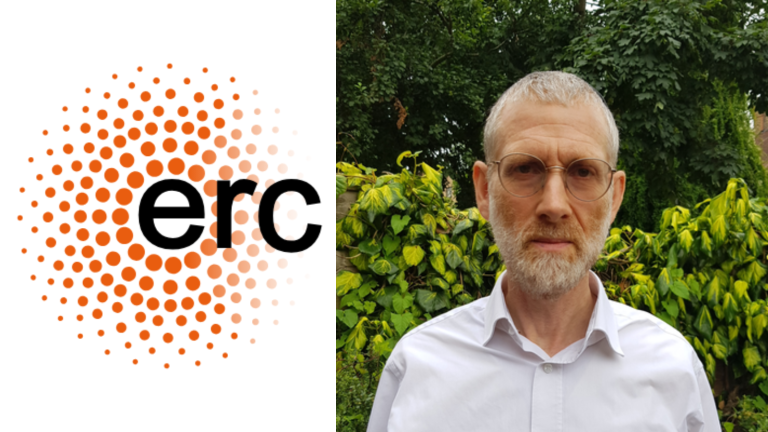EU funding success for Professor Sacha Stern
15 April 2024
Professor Sacha Stern (UCL Hebrew & Jewish Studies) is among nine UCL academics to have secured European Research Council (ERC) Advanced Grants.

A total of 255 academics across a range of international universities have had funding bids accepted by the ERC, sharing a pot of nearly €652 million (£560 million). The grant bidding process is highly competitive and only proves successful for ambitious, curiosity-driven projects that could lead to major scientific breakthroughs.
The competition attracted 1,829 proposals, 14 per cent of which were selected for funding. Estimates show that the grants will create 2,480 jobs in teams of new grantees.
Professor Sacha Stern is a Fellow of the British Academy and Professor of Rabbinic Judaism at the UCL Department of Hebrew and Jewish Studies, where he was Head of Department from 2012 to 2022. Having previously held an ERC Advanced Grant in 2013-2018, this year’s funding will support his research on astronomy, calendar and related sciences in Near Eastern cultures between the third and eighth centuries.
Below is a snapshot from Professor Stern’s ERC bid about the research project.
Astronomy, calendar, and related sciences in Near Eastern cultures, third-eighth centuries CE [NEAstr]
NEAstr investigates the history of astronomy, calendar computation, and related sciences (astrology, cosmology, chronology) in the Near East from the third to eighth centuries CE. This period has been marginalised by falling between two periods of Near Eastern pre- eminence in these sciences: ancient Mesopotamia before it (cuneiform ceased in the first century CE), and after it, the Arabic scientific renaissance under the Abbasids. We shall show how in the intervening period, astronomy and calendar sciences thrived and continued developing in local Near Eastern languages, in a variety of religious and cultural traditions. We shall challenge the notion that this period was a 'dark age', and that these sciences in the Near East were merely derivative and epigonist. This project seeks to highlight the contribution of understudied cultures to the history of science and human knowledge.
We shall bring to light a still poorly known body of literature in Syriac, Aramaic, Hebrew and Armenian, mainly in the Christian and Jewish traditions; and we shall extend our purview to old Arabic, Middle Persian, and Mandaic. Prominent are the works attributed, for example, to the Syriac scholar Severus Sebokht and the Armenian Ananias of Shirak. We shall produce historical studies, critical editions and translations, and a purposely constructed, open-access website incorporating a database and a multi-lingual scientific glossary. We shall evaluate the extent to which astronomy and calendar sciences in Near Eastern cultures preserved the earlier, Mesopotamian astronomical tradition, drew on contemporary Hellenistic scholarship, and impacted the later rise of Arabic astronomy. As a multi-disciplinary team, we shall investigate the fluid, trans-disciplinary relationship between these sciences, their broader cultural impact, and how they transcended, in the late antique and early medieval Near East, the boundaries of languages, religions and cultural difference.
Links
- Discover the full news story from UCL
- Professor Sacha Stern’s academic profile
- UCL Hebrew & Jewish Studies
- UCL Faculty of Arts & Humanities
 Close
Close

